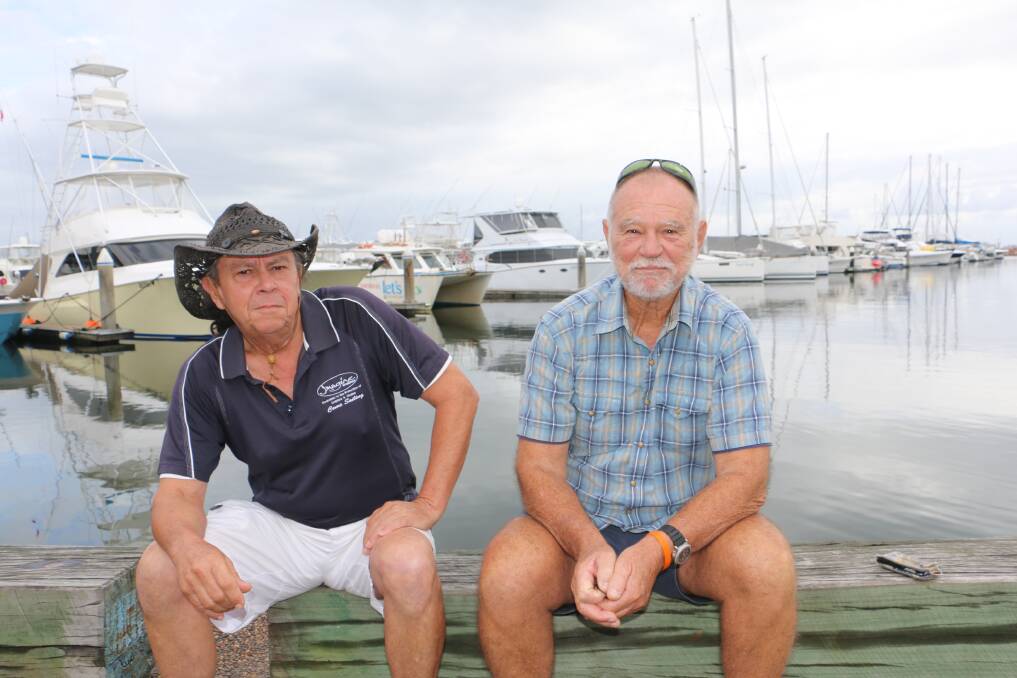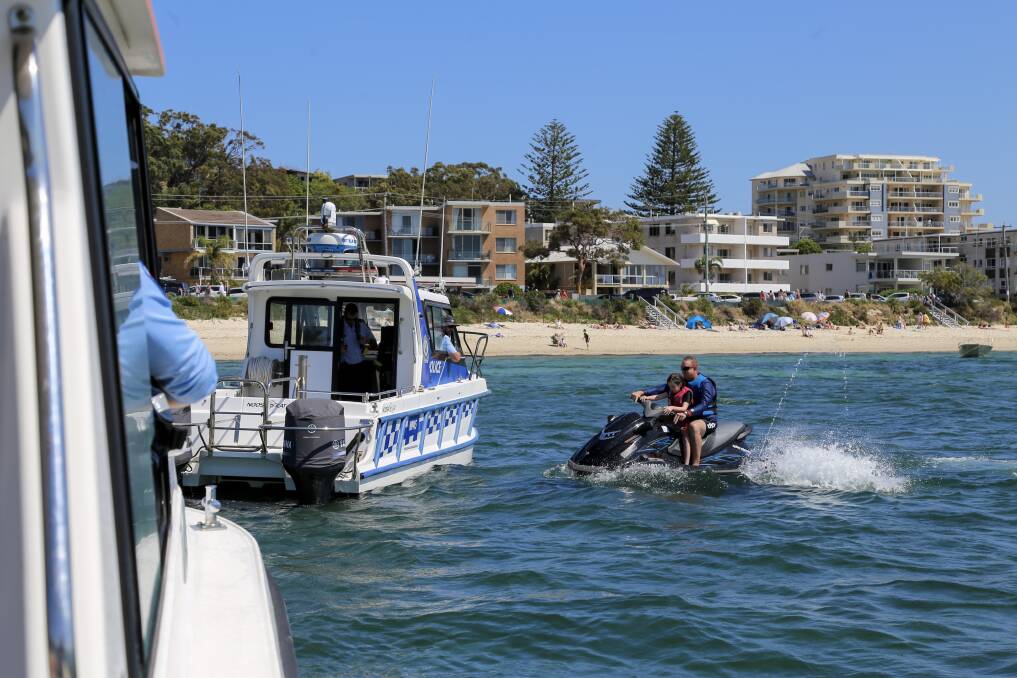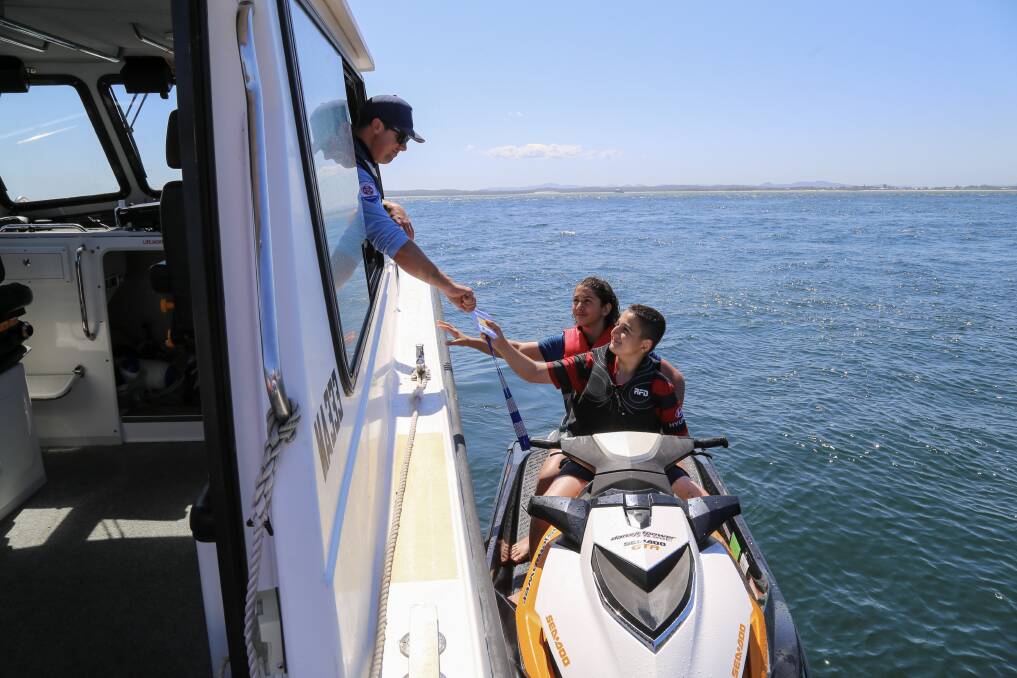
The explosion in the number of jet skis zipping around the Port Stephens waterways this summer has evoked plenty of commentary from a wide section of community, business, tourism, recreational, boating and fishing sectors.
Subscribe now for unlimited access.
or signup to continue reading
The great debate has also resulted in the coming together of two of the Port's most significant lobbyists who don't always see eye to eye - Imagine Cruises owner Frank Future and fishing guru John 'Stinker' Clarke.
While the pair differ on some points, what is clear they both agree that jet skis within the port should be regulated, if not banned.
The Examiner last week published two letters from locals defending the use of jet skis as recreational water craft within Port Stephens.
"The facts, in my opinion, are that the majority of riders are responsible and people seem to just focus on the negative. Jet skis do not have any sort of exposed propeller that can harm marine life," wrote Corlette's Mark Drabsch.
David Campbell, from Salamander Bay, added: "They [jet skis] are not loud, they are not dirty in fact most operate a closed cooling system unlike a two stroke boat motor they do not expel oil into the water, they are not dangerous and operate a concealed impeller which cannot contact life in the water."
A Transport for NSW spokesperson said that while jet ski use was permitted in Port Stephens, there were a number of rules that riders must adhere to on all NSW waterways.
"These include keeping a safe distance, adhering to speed restrictions, reducing noise, carrying a licence and wearing a lifejacket. The most common misdemeanours for jet ski riders in NSW are irregular riding, speeding and riding without a licence. Penalties for speeding start at $250."
NSW Maritime works closely with Marine Area Command at Port Stephens to regularly patrol and address antisocial or unsafe jet ski activity and carries out several on-water safety operations a year focusing on behaviour, licensing and safety checks.
A Water Police spokesperson said that 95 infringements had been executed over the 2020/21 summer.
"Sixteen were issued to personal water craft (PWC) riders, including one for operate without a licence, three for speed offences and 12 were behaviour stickers not affixed to the PWC as required. One rider was issued a court attendee notice for PCA," the spokesperson said. "The majority of riders were compliant with water police only receiving a small number of complaints."
The police spokesperson said that there were no specific speed restriction zones for PWCs, only under the Marine Safety Act and there are speed zones in the port which are to be adhered to by all water vessels.
"All vessels must keep a minimum distance and reduce speed when near marine mammals Powerboats, sailing boats and paddle craft must keep a minimum distance from whales - 100m or 300m if there is a calf - and dolphins - 50m or 150m if there is a calf. All PWCs must keep a minimum distance of 300m from whales, dolphins and dugongs."
Mr Future said that the escalation in the number of jet skis last summer coinciding with the increase in the number of inbound tourists was placing the bay's resident dolphins, turtles and other sea creatures under unnecessary duress.
"We are seeing more of our dolphins offshore due, I believe, to the stress they are being put under by jet ski riders in the bay who speed, ride erratically and ride in groups," he said.
"Many of the bay dolphins are females nursing their calves so their mobility is restricted. Jet skis while noisy above the water are silent machines underwater which makes dolphins, turtles and penguins fair game. Last year I had to call the police when a dolphin and her cub was being surrounded by a mob of jet ski riders."
Mr Future said that commercial craft are limited on the water to 25 knots, yet there appeared to be no speed limit for jet skis.
Mr Clarke, a lifelong boatie around Fingal Bay, said that while he acknowledged there were many responsible owners, a growing proportion of riders had very little regard for other water users and animal life.
"We fought for the marine park, we fought the pearl farm issue and we fought to save the turtles from crab-traps, and if we want to continue to pride ourselves on being eco-friendly we need to protect our sea animals," Mr Clarke said.
"But this campaign will only achieve results if the people of Port Stephens get behind it. They can no longer rely on a select few to do all the lobbying. Frank and I are not going to change things, only an army of support will achieve change."
Both Mr Future and Mr Clarke agree there are three options available to minimise the impact on dolphins: reduce the speed of jet skis, allocate an area in the port for their activity, or ban them altogether as was the case in Sydney Harbour some 30 years ago.
NSW Maritime carries out several on-water safety operations a year focusing on behaviour, licensing and safety checks.
"From August 1, 2020 to January 31, 2021, Transport for NSW boating safety officers conducted 193 compliance patrols on Port Stephens resulting in 2292 vessel checks, 74 penalty notices and 159 official cautions. 26 per cent of all checks were on jet skis with 35 per cent penalty notices and 36 per cent official cautions."
NSW Maritime has a hotline for reporting concerns about jet ski behaviour. Members of the community can call 13 12 36 and provide details of the time of the incident and vessel registration.
Our journalists work hard to provide local, up-to-date news to the community. This is how you can access our trusted content:
- Bookmark www.portstephensexaminer.com.au
- Follow us on Instagram @psexaminer
- Follow us on Twitter @PortExaminer



